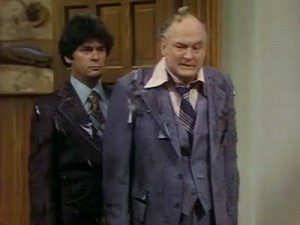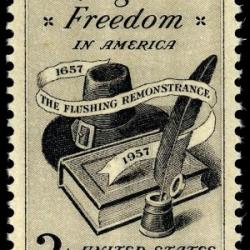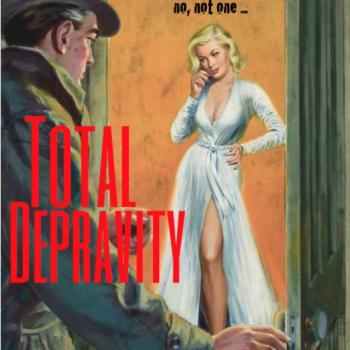• Wonkette has your traditional Thanksgiving Day Burroughs.
• M.K. Hobson tells us about Thanksgiving with the Wobblies (via Jay Lake).
Far from saluting God for our prosperity, genuine thanksgiving generates a deep desire that others may also have enough to meet their needs. If praying for daily bread means to pray for enough, then surely the implication is that when we have more than enough we will share the ‘more’ so that others may also have enough. Such sharing is an indication that our hope in Christ is deep and true.
• “Happy Thanksgiving, You Buckle-Hatted Jackasses” — Paul Bibeau writes to the pilgrims of the Mayflower:
Every day those who’d agree with you get shriller and more powerless. They’re still here, of course. We will never get rid of them. We don’t need to. We won’t take away their rights. But we’ll win when they can’t take away ours. This big crazy country is becoming the kind of place that stands in opposition to every sick thing you ever wanted.
And as we stop pretending you’re the good guys, we appreciate the subversive character of freedom more deeply. We realize it has a pitiless and undeniable logic – in claiming it for yourself, you allow others to claim it for themselves. In ways you can’t predict. In ways you might not like. Freedom spreads, because we always end up discovering we’re going to have to let others have it, to keep it for ourselves.
Thank you, Mayflower crew. You enemies of liberty, you opponents of everything America can be. We’ll take it from here.
One problem with trying to make the pilgrims the heroes of the First Thanksgiving (besides the fact that it was not the First Thanksgiving) is that the pilgrims aren’t even close to being the most interesting people in this story. Nobody on board the Mayflower was anywhere near as interesting as, for example, Squanto.
 I get that the pilgrims represent one particular strand of How Americans Got Here. They sailed from England in a rickety boat. But there were also Americans who were here before any Europeans arrived, there were Americans who came here by way of Spain, and there were Americans who were kidnapped by slavers and transported across the Atlantic against their will.
I get that the pilgrims represent one particular strand of How Americans Got Here. They sailed from England in a rickety boat. But there were also Americans who were here before any Europeans arrived, there were Americans who came here by way of Spain, and there were Americans who were kidnapped by slavers and transported across the Atlantic against their will.
And Tisquantum, or Squanto, lived every one of those stories.
The pilgrim story seems like a good one — like an epic tale of bold explorers on an unfamiliar shore. But that whole narrative fell apart as soon as Squanto’s buddy Samoset walked up and greeted them, saying “Welcome Englishmen.”
I’m still waiting for the epic movie that can do Squanto’s story justice. It’s an almost unbelievable tale — a strange man, the last of his people, with a penchant for popping up out of nowhere to rescue Englishmen who find themselves over their heads in an alien world. So until we get that Squanto movie, I’ll have to make do with this variation on his story.
The pilgrims also aren’t nearly as interesting, or as inspiring, as the people they kicked out of their little “city on a hill” colony — people like Anne Hutchinson and Roger Williams:
Williams’s most important contribution was his articulation of a biblical philosophy of religious liberty. During a return to England to secure a charter for Providence and its neighboring settlements, and in the context of the English Civil War, Williams wrote The Bloudy Tenent, of Persecution, for Cause of Conscience. It was his life’s work, and it pushed the conversation about church and state beyond religious toleration to complete religious freedom. The Bloudy Tenent challenged the notion, made popular by Winthrop and the Puritans of Massachusetts Bay, that Old Testament Israel could serve as a model for a modern society. He attacked the idea that God gave material blessings or material punishments to societies or nations on the basis of their collective obedience to God’s will.
Today, as many Christians appeal to the Puritans, Plymouth Rock or the Mayflower Compact as the source of America’s supposed biblical and Christian foundations, Barry reminds us that there was an alternative vision to the intolerant Calvinism of early New England. Williams was a Puritan outcast, a defender of “soul liberty” and a devout Calvinist who rejected Winthrop’s city on a hill and established a colony for some of the most controversial religious dissidents of his age.
I’ll take Providence over Plymouth any day. I’m thankful that Providence won — “that it is Williams, not Winthrop, who best represents the historical roots of the religious liberties that citizens of the United States enjoy today.”












